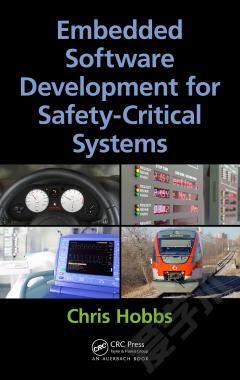Safety Management for Software-based Equipment
A review of the principles of the safety of software-based equipment, this book begins by presenting the definition principles of safety objectives. It then moves on to show how it is possible to define a safety architecture (including redundancy, diversification, error-detection techniques) on the basis of safety objectives and how to identify objectives related to software programs. From software objectives, the authors present the different safety techniques (fault detection, redundancy and quality control). “Certifiable system” aspects are taken into account throughout the book. Contents 1. Safety Management. 2. From System to Software. 3. Certifiable Systems. 4. Risk and Safety Levels. 5. Principles of Hardware Safety. 6. Principles of Software Safety. 7. Certification. About the Authors Jean-Louis Boulanger is currently an Independent Safety Assessor (ISA) in the railway domain focusing on software elements. He is a specialist in the software engineering domain (requirement engineering, semi-formal and formal method, proof and model-checking). He also works as an expert for the French notified body CERTIFER in the field of certification of safety critical railway applications based on software (ERTMS, SCADA, automatic subway, etc.). His research interests include requirements, software verification and validation, traceability and RAMS with a special focus on SAFETY.
{{comment.content}}








 京公网安备 11010802027623号
京公网安备 11010802027623号